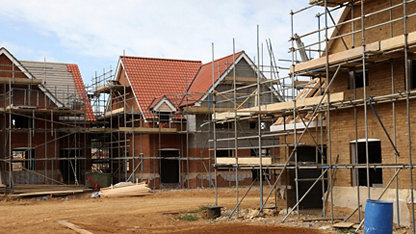The early estimate for the BCIS All-in Tender Price Index (TPI) for 4th quarter 2019 is based on a rise of 0.25% compared with the previous quarter. *
The estimate is the consensus of the BCIS TPI Panel, ** based on the analysed Delphi survey results. It does not necessarily represent the views of individual participants. The average from the survey was down on the previous quarter and the range of responses had narrowed, suggesting a tightening market.
The panel commented that while the 0.25% increase was a reasonable national average, there was a significant difference between regions with little or no inflation in London, while annual inflation of up to 2.0% was seen elsewhere.
The resultant 4th quarter figure shows a fall of 1.8% in the year from 3rd quarter 2018. *** This is influenced by a rise in the index in 4th quarter 2018, which was based on a small sample of projects received for that and the previous quarter. The current annual average figure for 2019 shows no change on the annual average for 2018.
The panel members were asked to provide information on the current level of main contractors' overheads and profit seen in contracts. The responses ranged from 4% to 6% and the mean was 4.86%. This is down slightly on 3rd quarter 2019, when the mean was 5.13%.
“The panel commented that while the 0.25% increase was a reasonable national average, there was a significant difference between regions with little or no inflation in London ”
The annual percentage change implied by the last four quarterly returns ranged from 0.5% to 3.5%, with a mean of 1.7%. This is slightly down on the 2.1% increase in the year to 3rd quarter 2019.
The panel felt that procurement and contract size had the biggest impact on prices, but that this may well be reflected in different regions and sectors. The size of the contract is a more significant factor in some regions, such as Scotland, where there is fierce competition for low value work.
Large, complex contracts (two-stage and CM) tend to attract higher prices as there is less competition.
There was a strong view that lifts are particularly difficult to source. There is a shortage of commissioning engineers, which exacerbates this situation. Cladding was also reported as difficult to source, and fit out as very competitive.
Improving exchange rates are probably easing the prices for imported materials. Since August, sterling is up over 10% against the euro and 8% against the dollar.
* The BCIS TPI Panel estimate has been applied to the previous quarter index and rounded to the nearest whole number for publication.
** BCIS has recruited a panel of practising cost consultants from firms involved in multiple tenders in each quarter to provide an early estimate of tender price movement in the latest quarter based on a panel (Delphi) survey approach. For further details, see New BCIS methodology for Tender Price Index estimates.
*** TPI figures prior to 4th quarter 2018 are based on project indices, generally single-stage, traditional procurement and with an average value of less than £5m (minimum £100,000, no maximum). This excludes M+E and other specialist trades, e.g. facades. BCIS has assumed this reflects market projects let on single stage design and build and specification and drawings. Indices are normalised for location, size and procurement. Percentage changes are mid-quarter to mid-quarter. Where the sample is below 20, the index is also influenced by the BCIS forecast.
The current BCIS TPI Panel members are:
• Ian Aldous, Arcadis
• Simon Birchall, Equals consulting
• Simon Cash, Artelia
• Rachel Coleman, Alinea
• Richard Hill, Currie and Brown
• Roger Hogg, RLB
• Karl Horton, Mott MacDonald Group
• Kristopher Hudson, Turner & Townsend
• Philip Hynard
• Agnieszka Krzyzaniak, Arcadis
• Mark Lacey, Alinea
• Brian Livingston, Gardiner & Theobald
• Peter Maguire, WT Partnership
• Simon Rawlinson, Arcadis
• Adam Reeve, Calfordseaden
• Phil Southgate, Gleeds
• Steve Waltho, Turner & Townsend.
• Max Wilkes, Faithful + Gould

















